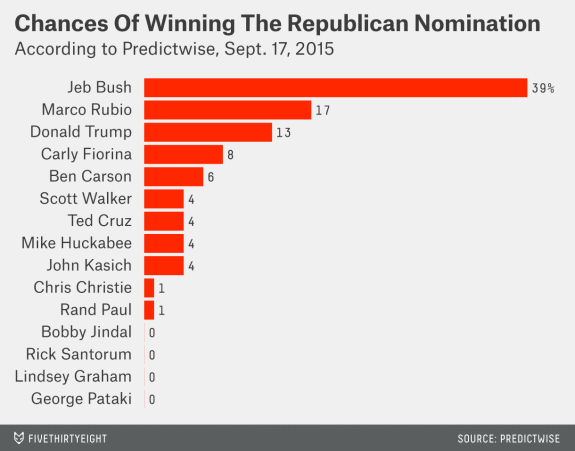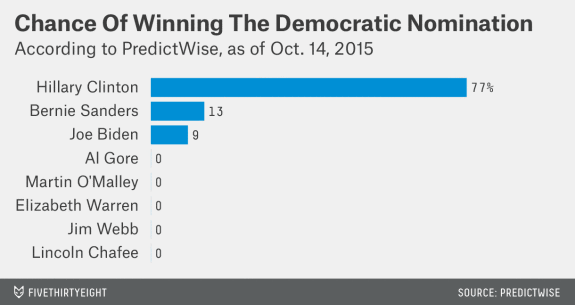
Leicester City was not going to win the Premiership—not by a long shot. Nor was the Republican nomination supposed to be handed to Donald Trump. And Bernie Sanders, well, there was no chance he was going to give Hillary Clinton a serious run for her money (and machine) in the Democratic primaries.
And yet here we are.
Leicester City Football Club, as anyone who has even a fleeting interest in sports (or reads one or another major newspaper or news outlet) knows, were just crowned champions of the Premiership, the highest tier of British football, after starting the season at 5000-1 odds. There really is no parallel in the world of sports—any sport, in any country. (By way of comparison, Donerail, with odds of 91-1 in 1913, is the longest odds winner in Kentucky Derby history.) And the bookies are now being forced to pay up.

Similarly, Donald Trump was not supposed to win the Republican nomination. Instead, it was going to go to Jeb Bush and, if he failed, to Marco Rubio. (And certainly Ted Cruz, the candidate most reviled by other members of the GOP, was not supposed to be there at the end.)

Finally, Bernie Sanders’s campaign for the Democratic nomination was written off almost as soon as it was launched. And yet here is—winning the Indiana contest by 5 points (when it was predicted he would lose by the same number of points) and accumulating enough pledged delegates to be him within a couple of hundred of the presumptive nominee.
What’s going on?
In all three cases, the presumption was that the “system” would prevent such an unlikely occurrence, and that the pundits and prognosticators “knew” from early on the likely outcome.

So, for example, the winner of the Premiership was supposed to come from one of the perennial top four (Manchester United, Chelsea, Arsenal, and Manchester City)—not a club that were only promoted from the second division of British football in 2014 and last April were battling relegation (they finished the season 14th).
Pretty much the same is true in the political arena: neither Trump nor Sanders was taken particularly seriously at the start, and along the way the prevailing common sense was that their campaigns would simply implode or wither away. The idea was that the Republican and Democratic parties and nominating contests were structured so that their preferred nominees would inexorably come out on top.
There are, I think, two lessons to take away from these bolts from the blue. First, the “system,” however defined, is much less complete and determined than people usually think. There are many fissures and spaces in such systems that make what are seemingly unlikely outcomes real possibilities. Second, our presumably certain “knowledges” are exactly that, knowledges, which are constructed—in the face of radical uncertainty—out of theories, presumptions, blind spots, and much else. The fact is, we simply don’t know, and no amount of probabilistic certainty can overcome that epistemological gap.
So—surprise, surprise—Leicester City and Trump won, while Sanders has put up a much more formidable challenge than anyone expected from a socialist presidential candidate in the United States.
[…] argument I made 10 days ago about surprises—represented by Leicester City, Donald Trump, and Bernie Sanders—was meant as a reminder that […]